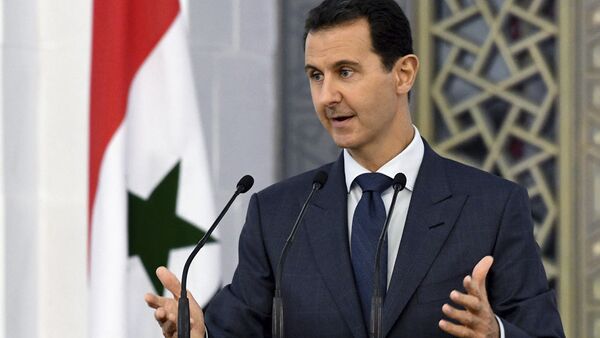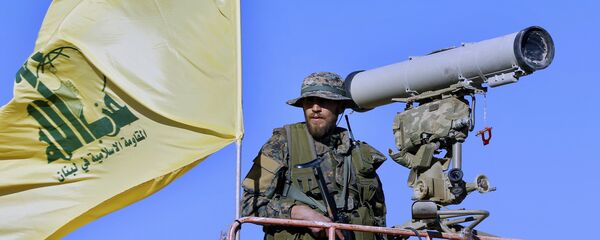Major General Aviv Kochavi, incoming Chief of Staff for the Israel Defence Forces (IDF), once planned to have Syrian President Bashar Assad killed for his support for Hezbollah, according to the UK-based Saudi newspaper Elaph as reported by the Jerusalem Post.
Elaph quoted an unnamed senior Israeli official as saying that when serving as the IDF's Director of Military Intelligence, Kochavi was in favour of toppling Assad, even if it meant resorting to assassination.
READ MORE: Netanyahu: Assad 'No Longer Immune', Israel to Destroy Syrian Forces if Attacked
Whereas Kochavi backed the idea of ousting the Assad regime, which "would bring calamities to Israel from Iran and Hezbollah", Mossad head Yossi Cohen "wanted an address in Syria", according to the official.
The Jewish state moved to focus on preventing what it sees as Tehran's entrenchment in the country by targeting Iranian and Hezbollah assets, "while making sure [Israel] inflicts minimal damage to the Damascus regime", the official pointed out.
Israel has been conducting airstrikes on Syrian territory, claiming to be attacking Iranian military objects and convoys with weaponry. Tel Aviv insists that Tehran is transferring arms to Hezbollah, which the latter uses against Israel, through the Arab Republic.
READ MORE: Israel Vows to 'Eliminate' Assad if He Keeps Letting Iran Operate From Syria
Iran, in turn, has denied maintaining any military presence in Syria apart from its military advisors, who were requested by Damascus. Both Tehran and the Syrian government have repeatedly denounced Israeli air raids.
Israel-Hezbollah Tensions
In early December, the IDF launched Operation Northern Shield, and over the three-week course of the military operation, Israeli forces located four tunnels under the country's northern border. Israel believes that Hezbollah used the aforementioned tunnels to smuggle militants and weapons.
The conflict, which lasted 34 days and claimed the lives of over 1,300 people, was halted by a UN-brokered ceasefire. Lebanese-Israeli relations have remained poor for many decades, with tensions escalating recently amid Tel Aviv's suspicions that Hezbollah was being used by Iran to wage a proxy war on Israel.



